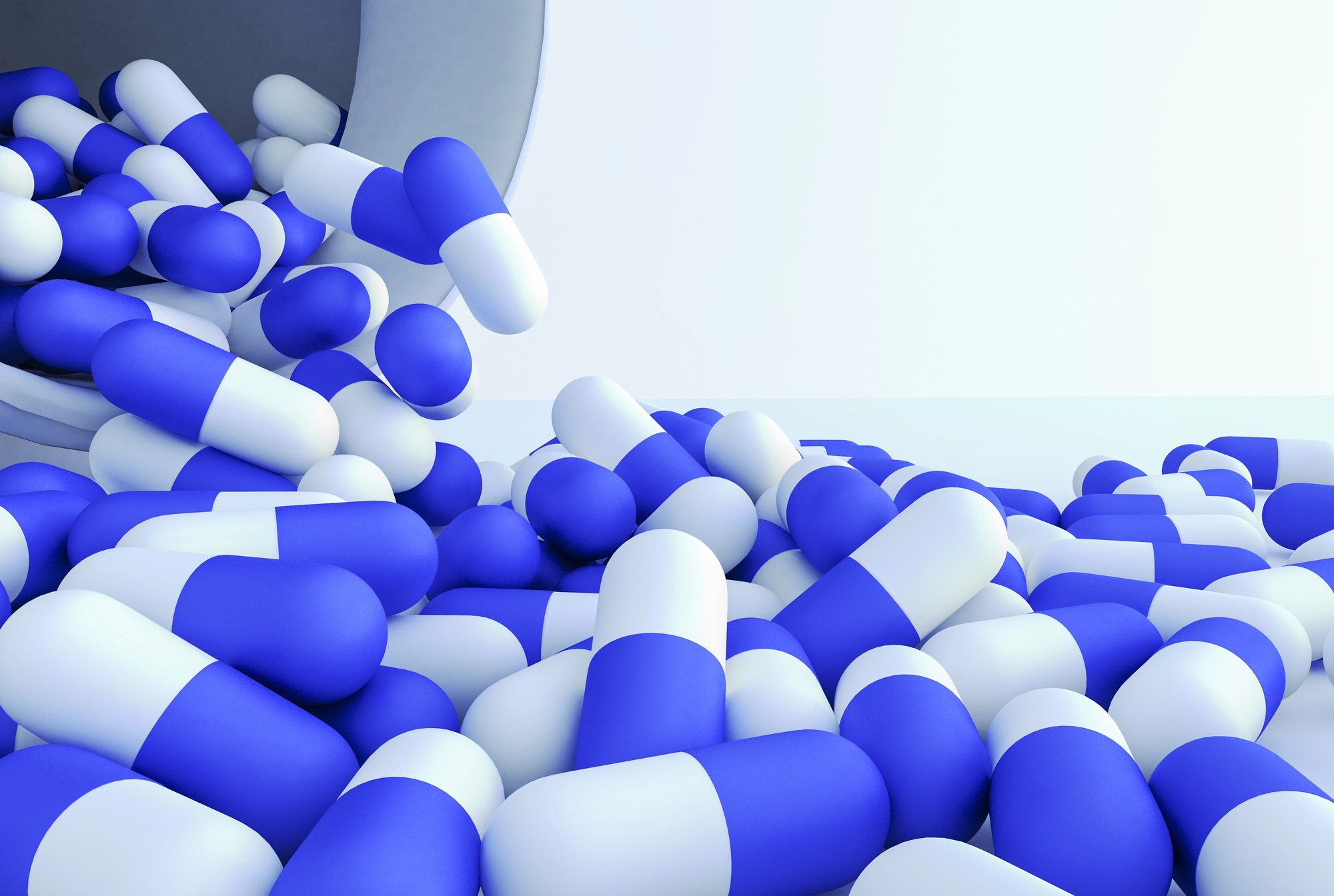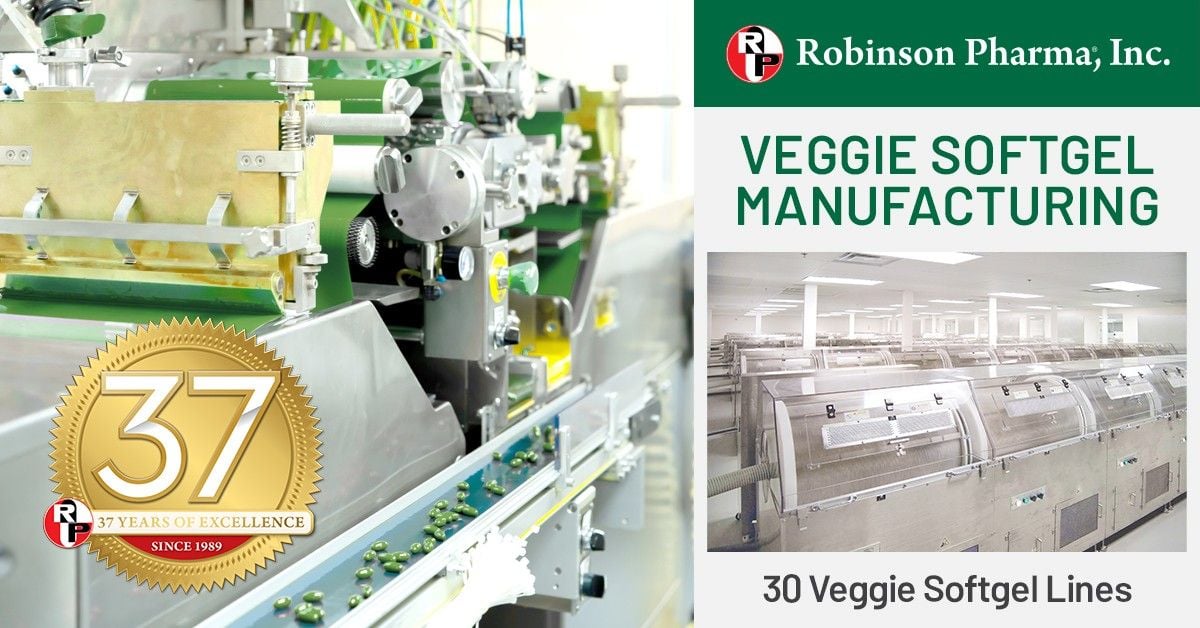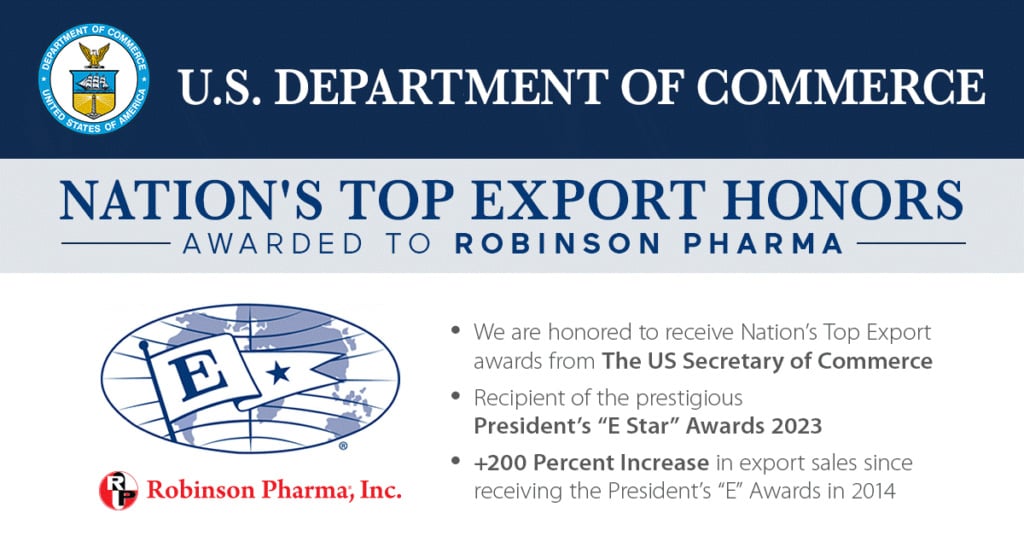To discuss a high-quality product, we cannot solely rely on its ingredients and formulation; the encapsulation method also plays a crucial role. Encapsulation protects the product from external influences and safeguards its nutrients and components. For supplements, proper encapsulation is even more critical. So, why do encapsulation services matter for supplement quality? Let’s explore this topic in this article!
Key Takeaways
- Encapsulation technology is the process of enclosing, protecting, and preserving products in suitable materials or containers to ensure they are shielded from external factors such as light, moisture, air, or bacteria.
- When selecting an encapsulation method for supplements, several important factors must be considered: nutrient absorption and delivery, concentration levels, flavor profile, time-release mechanisms, storage stability, and transportability.
- Types of Encapsulation for Supplements: tablets, capsules, gel capsules, powders, gummies, chewables, liquids.
What Is Encapsulation?
Encapsulation is a technology that encloses active ingredients within a carrier material. It is also understood as protecting and storing a product to maintain its quality and effectiveness throughout its usage.
The materials used for encapsulation must meet food-grade standards, be biodegradable, and provide a protective layer between the active ingredient and the external environment. Among these materials, complex carbohydrates (polysaccharides) are the most commonly used in food products. Additionally, proteins and fats are suitable options for creating this protective coating.
For supplements, encapsulation is not just about enclosing the product but also about ensuring that the active ingredients function correctly and are not degraded by environmental factors.

Things to Consider When Choosing Type of Encapsulation
Absorption and Nutrient Delivery
Encapsulation techniques such as microencapsulation or tablets can significantly impact supplements’ nutrient absorption and delivery. For instance, encapsulation techniques using alginate or other polysaccharides help protect probiotic cells from external environments, improving their survival and efficacy.
Nutritional supplements and functional foods, including probiotics, vitamins, minerals, and extracts, often utilize encapsulation technologies and are increasingly popular in current consumer trends.
Moreover, liquid and powder forms generally have faster absorption rates than tablets or capsules. This can be suitable for those needing quick effects. For capsules or tablets, it is essential to ensure that the active ingredients are released at the right time and place in the body to optimize product effectiveness.
Concentration Levels
When using encapsulation services, it is crucial to consider the concentration levels of the ingredients in the product to ensure that each dose provides the necessary amount of nutrients.
Different encapsulation methods offer varying nutrient concentrations. Tablets and capsules typically provide fixed doses, ensuring users receive the required supplements. On the other hand, liquid or powder forms allow for easier dosage adjustments, catering to individual needs.
Currently, many supplements come in small, easy-to-swallow tablets. However, creating small tablets can be challenging for nutrients requiring more significant amounts, such as whey protein. Nonetheless, these compact forms can effectively encapsulate most vitamins and minerals.
Encapsulation services like dry spray or freeze-drying can be used to produce tablets or granules with precise concentrations of active ingredients.
Flavor Profile
Our taste, smell, and appetite can change as we age, often influenced by illness or medication. Proper encapsulation services can help preserve the desired flavor of the product.
Remember that the encapsulation technology can affect functional foods’ flavor and odor. Encapsulation techniques such as capsules or gel capsules are worth considering to protect best and stabilize the product’s flavor.
Flavor is essential for powder, gummy, or liquid supplements. These products need to have a pleasant taste to ensure user comfort. Gummies are often preferred for their sweet taste. At the same time, tablets and capsules are flavorless, making them suitable for those who prefer to avoid strong tastes.
Time-Release Mechanism
When considering time, consider how the encapsulated product needs time to dissolve and be absorbed by the body.
Functional foods also benefit from specific time-release mechanisms provided by encapsulation services. These mechanisms help maintain stable nutrient levels in the body, reduce the frequency of intake, and enhance absorption efficiency.
For example, encapsulation techniques control the release rate of active ingredients, ensuring they are gradually released and provide long-lasting effects. Tablets and capsules can be manufactured with these time-release technologies.

Shelf Stability
The stability of functional foods during storage is influenced by the encapsulation services used. Different encapsulation methods offer varying levels of protection against degradation due to moisture and light.
Tablets, capsules, and soft gels generally exhibit higher durability than powders or liquids, which can be sensitive to temperature and humidity. Effective encapsulation helps maintain the product’s quality over time.
Transportability
Transportability is also critical, affecting how the product is preserved and transported from the manufacturer to the consumer. Ensuring that the product remains undamaged during transportation and is well-preserved is essential.
Tablets and capsules are easier to transport and store. At the same time, liquids or gummies may require more space and special storage conditions to prevent spoilage. Secure encapsulation helps minimize the risk of product loss.
Types of Encapsulation For Supplements
Tablets
Tablets are one of the most common encapsulation supplements methods. They are easy to produce, have a long shelf life, and ensure you receive the correct amount of nutrients with each use. Tablets also allow for customization of shape and size, making them ideal for products requiring large doses.
Tablets are compressed from active ingredients and excipients, which helps with preservation and ease of use. Sometimes, tablets are coated with a thin layer to protect them from moisture and light, making them easier to swallow, especially for those who are not accustomed to taking medication.
Some tablets are designed to release nutrients gradually, aiding in better absorption by the body. However, tablets may be difficult to swallow for some individuals due to their often large size.
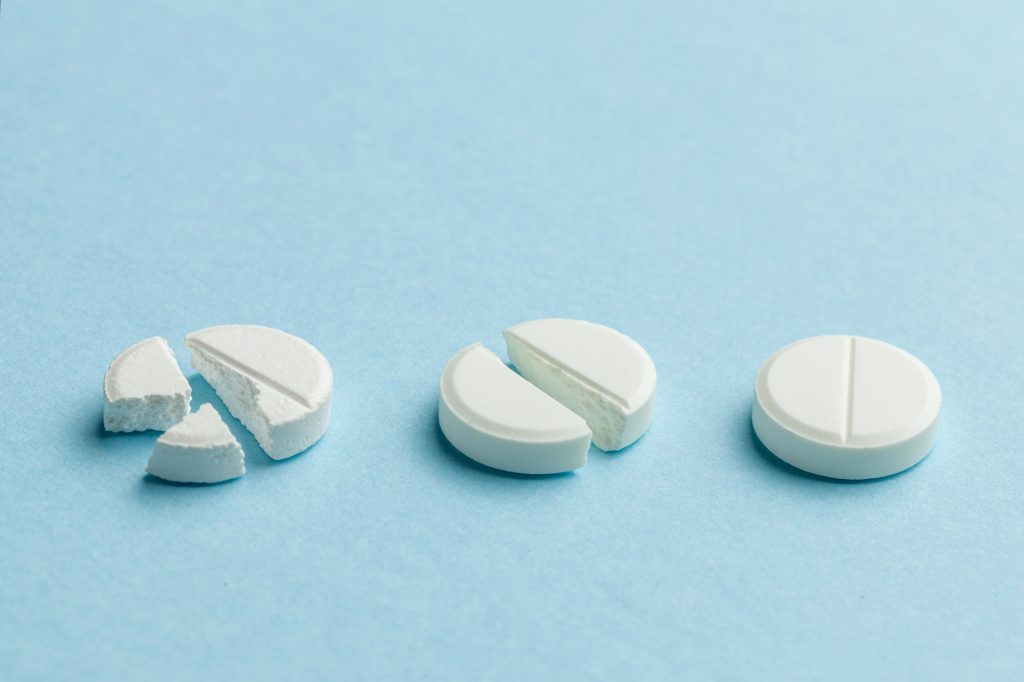
Capsules
Capsules are another option, ideal for those who dislike the taste or texture of tablets. Capsules typically have a gelatin or plant-based shell, making them easier to swallow. Inside, they may contain powder, liquid, or gel, which helps protect sensitive nutrients from moisture and light.
A major advantage of capsules is that they help protect delicate substances when they reach the stomach, ensuring better absorption. Additionally, capsules are gentle on the stomach and can contain powders and oils.
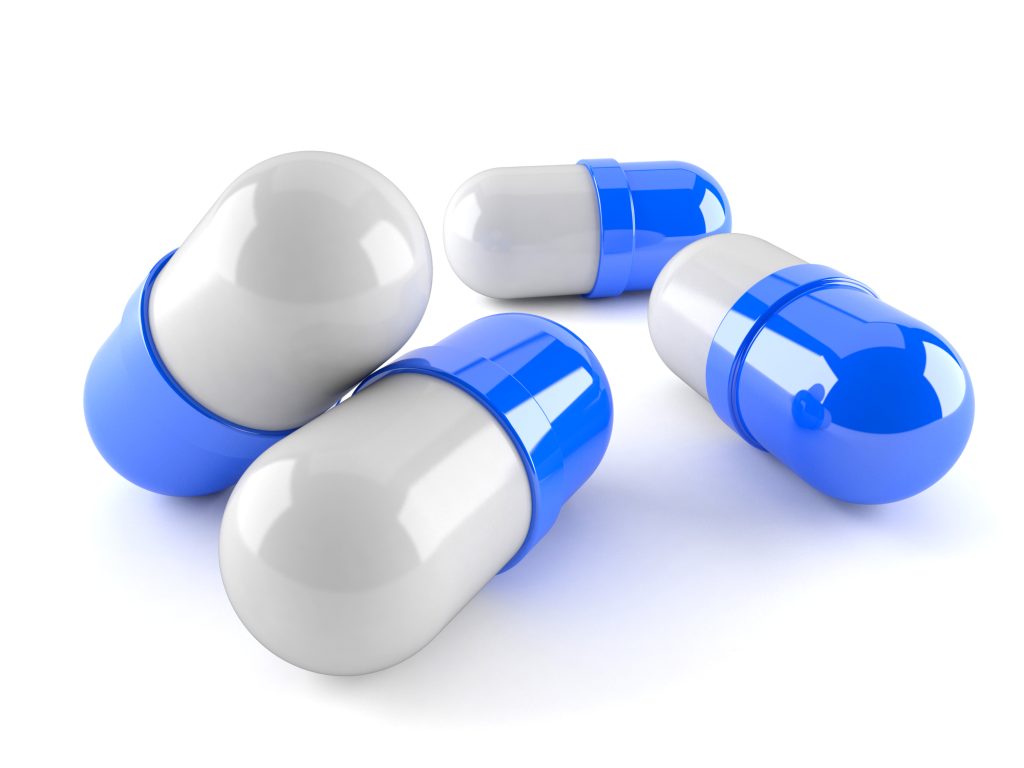
Softgels/Gelcaps
Softgels are commonly used for oil-based supplements, such as fish oil or fat-soluble vitamins. They are easy to swallow and provide good protection for the nutrients inside. Softgels also have high durability, helping to maintain nutrient quality over time.
Softgels are more easily absorbed, especially for ingredients that are difficult to dissolve in water, such as fish oil or vitamins A, D, and E. They are not only easy to swallow but are also famous for their rapid effects.

Powders
Powdered functional foods are versatile; they can be mixed with water, smoothies, or your favorite beverages. Powders are easy to adjust for dosage but can sometimes have an unpleasant taste or texture, making them less comfortable to use without added flavoring.
Powders absorb quickly and are suitable for functional foods like protein, enzymes, or energy boosters. This is a convenient option for busy individuals! However, powders may clump and taste unpleasant, so using a shaker or blender is necessary.
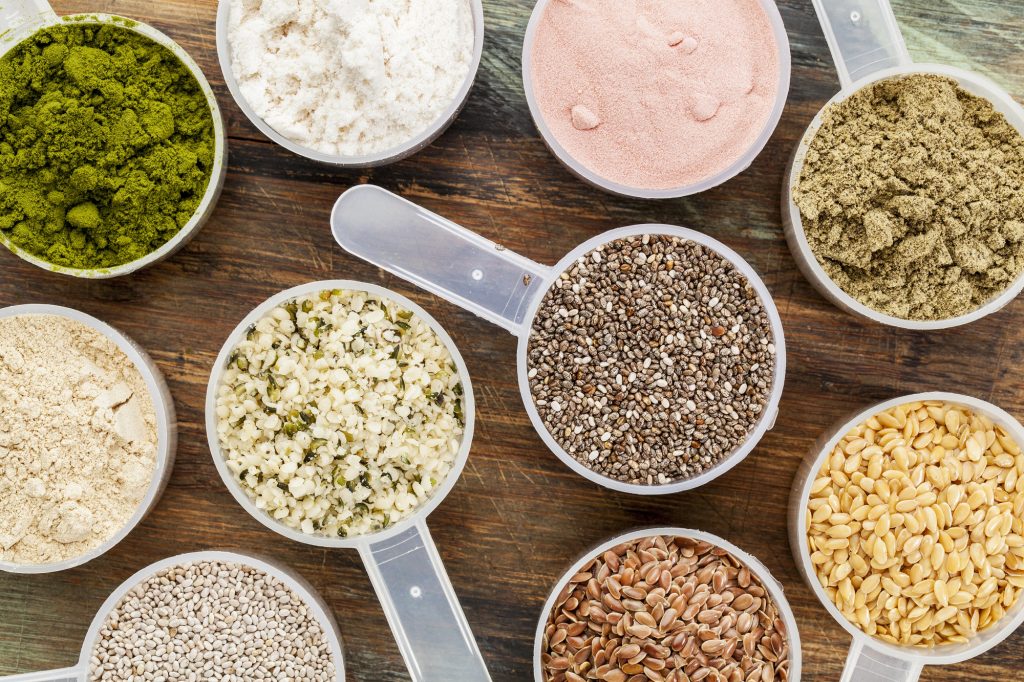
Gummies and chewable tablets
Gummies and chewables are excellent choices for children or those who dislike taking pills. They often come in pleasant fruit flavors but provide the necessary vitamins and minerals. This form makes the nutritional supplement experience more enjoyable, no longer feeling like “taking medicine.”
The sweet taste and soft chewable texture make them more pleasant to consume. However, some gummies may contain high sugar levels and not provide precise dosages like tablets or capsules.

Liquids
Liquid supplements are the fastest-absorbing form, allowing your body to receive nutrients almost immediately. This is especially suitable for children or older adults with difficulty swallowing. However, liquids often require careful storage and have a shorter shelf life than other forms.
The biggest advantage of liquids is that they are easy to drink, dosage can be adjusted easily, and nutrients are absorbed more quickly. They can be used for various functional foods, from vitamins to health-supporting herbs.
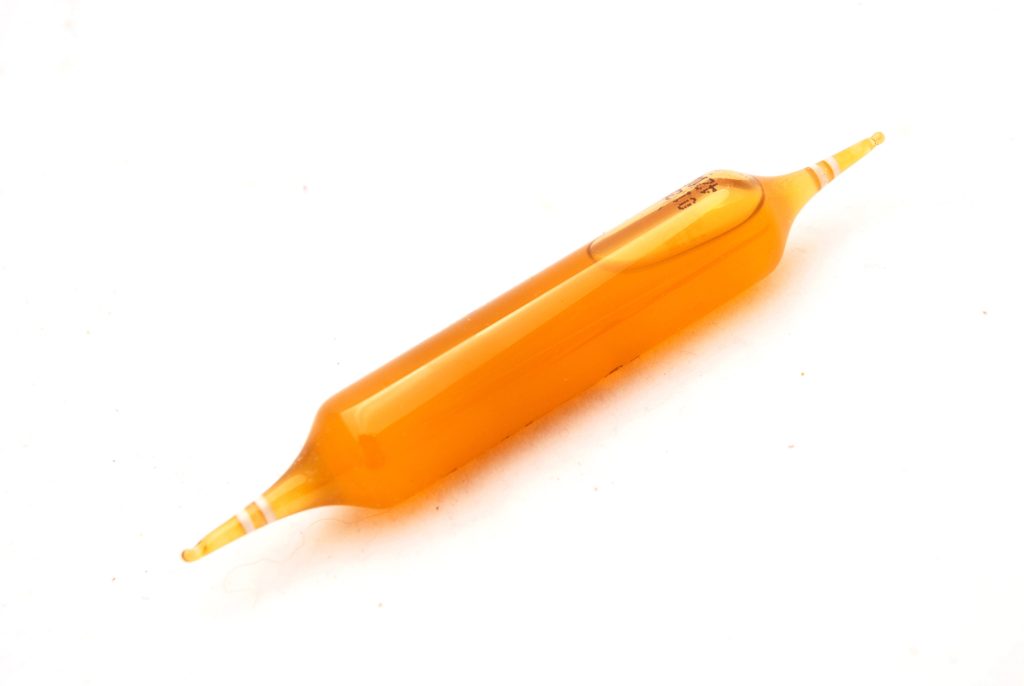
Why Encapsulation Services Matter for Supplement Quality?
Encapsulation services play a crucial role in maintaining the quality of functional foods. Here are some benefits of using encapsulation services for functional foods:
Firstly, Protecting Active Ingredients
Preventing Exposure to Harmful Factors: Encapsulation technology helps protect active biological ingredients from environmental factors such as oxygen, temperature, and moisture. This helps maintain the effectiveness and extend the shelf life of the functional food product.
Preserving Natural Flavor and Aroma: Encapsulation protects the flavoring components in the food, ensuring that the taste and aroma remain unchanged throughout the storage period.
Secondly, Masking Unpleasant Flavors
This is particularly important for ingredients with bitter tastes, such as polyphenols. Some functional foods may taste bitter, and encapsulation helps minimize the discomfort associated with consuming these supplements.
Thirdly, Stabilizing Ingredients and Product Quality
Preventing Quality Degradation: Encapsulation protects the stability of ingredients throughout storage, preventing quality degradation caused by exposure to air or moisture.
Preventing the Evaporation and Degradation of Volatile Substances: Ingredients like flavorings are prone to evaporation and degradation, but encapsulation helps maintain their structure and value.
Fourthly, Enhancing Nutrient Absorption
Encapsulation improves absorption efficiency, increasing the body’s ability to absorb essential nutrients while controlling the release rate of these substances in a regulated manner.
Fifthly, Preventing Unwanted Reactions
Ingredients in functional foods can react with external factors such as oxygen, water, or other supplements, altering the quality and effectiveness of the product. Encapsulation helps prevent these risks, ensuring your product remains in the best possible condition.
Sixthly, Ensuring Quality During Storage and Transport
High-quality encapsulation helps protect functional foods over long periods, even during extended transportation. It ensures that the quality and value of the product are maintained throughout the process.
Transportation often poses product damage risks, and encapsulation is an effective solution to protect the product during transit, preventing damage and quality degradation.
Conclusion
Encapsulation services play a crucial role in protecting and maintaining the quality of functional foods. Choosing the appropriate encapsulation method helps optimize product efficacy, from protecting active ingredients to preserving flavor and stability during storage. Robinson Pharma offers expertise in understanding the various encapsulation types and factors to consider, which can enhance product quality and consumer satisfaction with functional foods.

